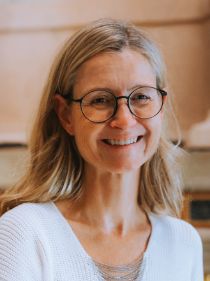The “Research Lab Democracy and Society in Transition”, founded in January 2018 at Danube University Krems’ Faculty of Business and Globalization, investigates the current societal change processes and develops strategies to promote social cohesion. The new lab consists of the netPOL and ECOnet networks, the science-to-public-platform sozialeinklusion.at as well as the “social planning and social care” area.
Dr. Christina Hainzl, head of the center, along with political scientist Prof. Dr. Peter Filzmaier and her research team, wants to take into account the transition of democracy and society on the one hand, and the necessary social policies on the other. “We are currently confronting changes that are causing social upheaval at both the European and global level,” says Christina Hainzl. At the same time it is apparent that the gap is widening, “whereby social fairness and questions concerning the distribution of resources are increasingly becoming critical issues. In the framework of the Research Lab we are asking ourselves how this process could be countered, and what social cement society will need in future,” says the head of the new research center.
Strengthening inter and transdisciplinarity
The idea is to supplement the classic research approaches with new methods and science-to-public projects in order “to make the broad spectrum of thought, research and experience more accessible,” says Christina Hainzl. Close cooperation with other departments at the university and social players aims to strengthen the Research Lab’s interdisciplinarity and transdisciplinarity (research that involves stakeholders from business, politics, administration as well as civil society.) “The new focus complements the existing transdisciplinary labs at our faculty, such as GovLabAustria, the Td-Lab for the sustainability of digital environments and the Td-Lab for sustainable mineral resources management, while also supporting our research in the area of “Principles of Social Peace,” explains Univ.-Prof. Dr. Gerald Steiner, Dean of the Faculty of Business and Globalization.
The new “Research Lab Democracy and Society in Transition” (deSIT) projects are dedicated to current political frameworks in social development, the critical discourse on democracy and participation, including their quantitative study and regional supply.
“On the one hand, democracy in today’s world plays a key role in safeguarding a sense of community in modern and extremely mobile societies. On the other hand, however (depending on what you want to call it) this field is fraught with great dangers and challenges,” says Peter Filzmaier, university professor at Danube University Krems and Karl-Franzens University Graz. While networking and social media open up new opportunities for participation, they also create new problems and massive overload. Peter Filzmaier will continue to head the well-established political communication network (netPOL) as part of the Research Lab, but will concentrate more on research. The university courses Political Education and Political Communication at the Department of Knowledge and Communications Management will continue to be offered, directed by Gerda Füricht-Fiegl, MSc.
Politics, rural development and social inclusion
Besides netPOL, the network ECOnet to study the economic and political development of rural areas and the “Social Inclusion, Political Education and Prevention – sozialinklusion.at” project have also been incorporated into the new Research Lab. sozialeinklusion.at explains and provides current research results and terminology relating to social inclusion. “It should also highlight where social action and prevention can be improved in communal life,” says Christina Hainzl.
A further area of focus called “social planning and social care”, is producing dissertations on the subject of health care and education policy as well as a publication about political frameworks and sociomedical care.
“In summary, our lab examines the question of what political frameworks could be created to promote and safeguard inclusion, prevention, social care, democratic development and participation,” explains Christina Hainzl. Prevention in the context of extremism but also in regard to the social sphere, “that is to say, preventing social injustice from spreading further. The foundation for this can be laid in the education sector, in the health sector, in the sociopolitical sector – whereby everything here is interconnected.”
